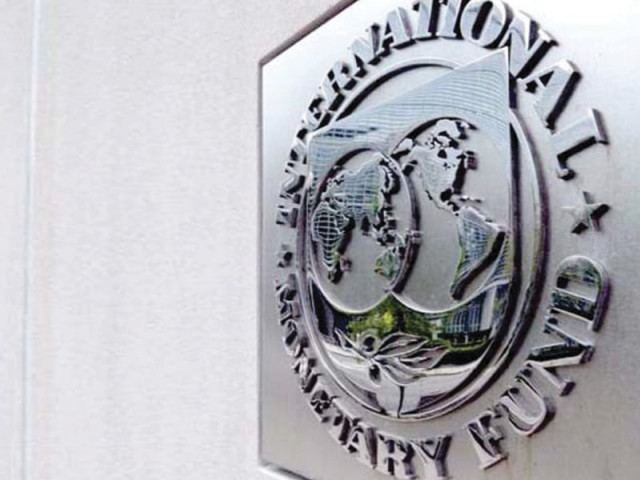‘Poor negotiation’: Recent IMF loan deal will hurt us in the future, say experts
Conditions to limit development spending will harm Pakistan, say economists.

Government officials said that they had no option but to accept the IMF’s conditions which eventually seek a cut in development projects. PHOTO: FILE
For a developing country like Pakistan, the focus needs to be on growth and development in order to create a better infrastructure, which should ultimately increase economic opportunities. Unfortunately, the government’s current focus is on stabilising the economy, which could possibly lead to employment problems for university graduates.
Our economic managers are, however, bound to use this stabilisation model, as the recent loan agreement between the Pakistan government and the International Monitory Fund (IMF) was meant to take the economy out of its crisis and not for economic growth, said economists at a seminar “Alternate Economics –Building the Future of Pakistan.
Criticising the 15th loan agreement, Asad Zaman, an economist, said that the IMF lent Pakistan government money because they felt that the country was likely to default and would be unable to pay its import bill. “If we suppose, for a moment, that Pakistan defaults, then it will only hurt the 1% elite of society, while the rest will never suffer,” said Zaman.

“This is the time for self reliance, we have brilliant brains, huge resources, we only need a little support from the government. The rest can be done by Pakistanis to lessen imports. There is a huge difference between urgent and important and the government needs to understand this distinction.”
Zafar Iqbal, a chartered accountant by profession, criticised the IMF deal, saying that Pakistan was unable to negotiate and failed to convince the body over sanctioning the loan for growth purposes.
The $6.7 billion loan is not meant for growth, which will adversely impact the different segments of our economy. Government officials said that they had no option but to accept the IMF’s conditions which eventually wants Pakistan to cut down on development projects, bring agriculture sector under the tax network, remove subsidies, increase electricity, gas tariffs, devalue Pak rupee, privatisation of bleeding state own enterprises.
“Our population is growing at 3.2% per annum,” said Iqbal. “Fifty percent of our population is under 20 years of age. What would be the situation if money was not injected in different infrastructure and industrial development schemes right now?
Meanwhile, professor Waqar Haider, who heads the research and development department at the Comsats Institute of Information and Technology, said the country needed indigenous development.
“Pakistan is heavily relaying on imports and is not working on indigenous development,” said Haider. “If Pakistan is self-sufficient in its defence by producing different missiles and drones then why cannot it apply its talent in other sectors of the economy?
“Currently very few people in different industrial clusters are working with this approach. But what they create often does not meet international standards, as our scientists and engineers do not cooperate with them.”
All experts also stressed on quality education, without which the country’s society would remain ‘in a mess’.
Published in The Express Tribune, December 8th, 2013.
Like Business on Facebook, follow @TribuneBiz on Twitter to stay informed and join in the conversation.



















COMMENTS
Comments are moderated and generally will be posted if they are on-topic and not abusive.
For more information, please see our Comments FAQ